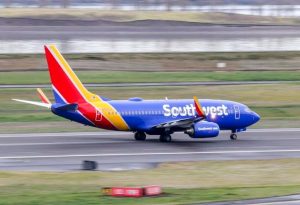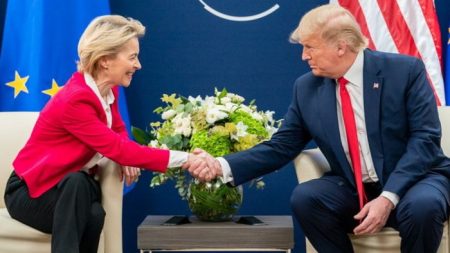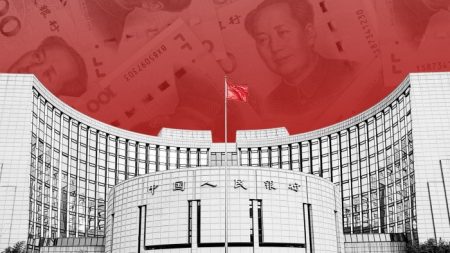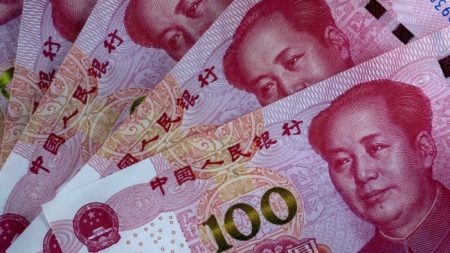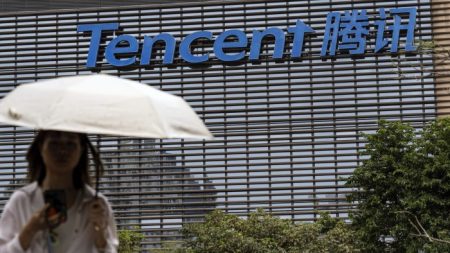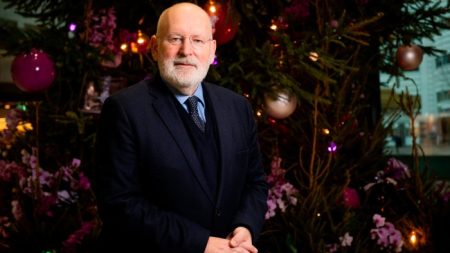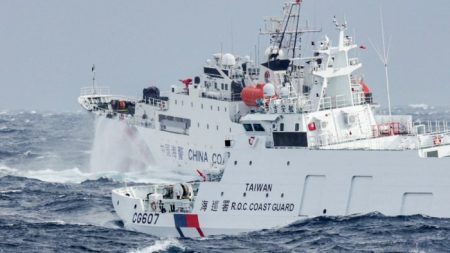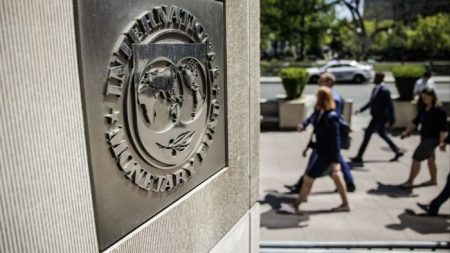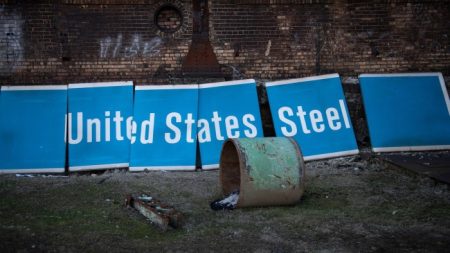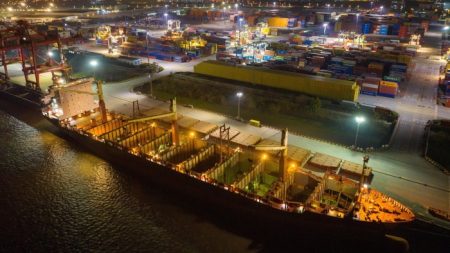Unlock the Editor’s Digest for free
Roula Khalaf, Editor of the FT, selects her favourite stories in this weekly newsletter.
Lufthansa has become the first airline group to pass the cost of Europe’s new emissions rules on to passengers, announcing a surcharge of between €1 and €72 per ticket from next year.
The Frankfurt-based group, which operates Eurowings, Swiss and Austrian Airlines as well as the German flag-carrier, said on Tuesday it was imposing the fee on departures from European countries to cover the “steadily rising additional costs” of new environmental fuel requirements.
Lufthansa attributed the introduction of the surcharge to the EU’s rule to make sustainable aviation fuel (SAF) at least 2 per cent of airlines’ fuel consumption, which is coming into force at the start of 2025. It also pointed to Europe’s emissions trading scheme and the international Corsia scheme, under which airlines buy carbon credits to offset any growth, as factors behind the fee.
SAF is currently at least twice the cost per tonne of conventional, hydrocarbon aviation fuel.
The group’s surcharge will apply to departures from the 27 members of the European Union, the United Kingdom, Switzerland and Norway, all of which are participating in the SAF rules and have emissions trading schemes.
Andrew Charlton, of the Aviation Advocacy consultancy, said Lufthansa Group’s move, the first by a European airline, was an “extremely aggressive” response to the introduction of the new rules by the European Commission.
While some airlines had introduced surcharges after airlines’ inclusion in the Emissions Trading Scheme in 2012, Lufthansa’s move was the first by a European airline in response to the latest measures, said Charlton.
The European Union’s SAF quota is due to step up gradually over coming decades, to reach as high as 70 per cent by 2050. The industry is one of the hardest to decarbonise because of the challenges of finding non-fossil fuels as dense in energy as highly concentrated kerosene. Lufthansa expects the gradually increasing SAF requirement to cost billions of euros in coming years.
“The airline group will not be able to bear the successively increasing additional costs resulting from regulatory requirements in the coming years on its own,” it said.
The new surcharge would cover part of the costs arising from the regulatory requirements for 2025, the group said.
Some environmental campaigners warned that airlines needed to be transparent over what they were charging for.
Jo Dardenne, aviation director at Transport & Environment said: “The surcharge announced does not provide enough clarity on the volumes and costs of SAF purchased, nor on the distribution of costs between the airline and its passengers.”
There are substantial concerns about the ability of SAF providers to produce enough fuel to cover global requirements.
Manufacturers produced 500,000 tonnes of SAF worldwide last year. Lufthansa consumed 8.45mn tonnes of fuel during the year.
It is not clear whether other European airline groups will introduce similar explicit surcharges or absorb the costs of the new environmental requirements themselves.
Lauren Riley, chief sustainability officer for the US’s United Airlines, this week called in an FT interview for pipeline operators to start carrying SAF, as part of efforts to reduce the costs of the fuel.
Read the full article here


